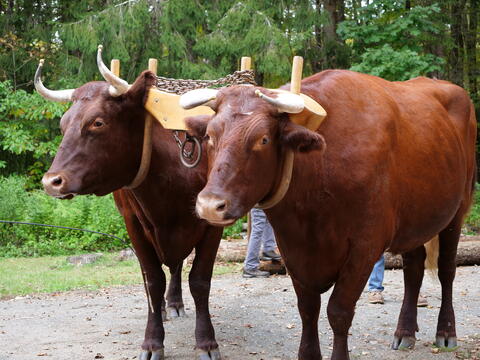
By: Mia Ambroiggio ‘26 MEM
Over spring break, students from the Yale School of the Environment traveled to Panama, Costa Rica, and Ecuador to explore tropical forested landscapes firsthand. These immersive trips give students the opportunity to apply what they’ve learned in the classroom to real-world settings.
Tropical Field Botany – Costa Rica
In the “Tropical Field Botany” course instructed by scientists from New York Botanical Gardens, students learn to identify key tropical plant families — especially woody taxa — with a focus on those of economic, ecological, or ethnobotanical significance. They apply this knowledge during a field trip to Costa Rica, where they explore these families in their natural habitats. The combination of seminar and fieldwork offers a holistic understanding of how these taxa shape their ecosystems and the communities they coexist with.
“My spring break field trip to Costa Rica was an unforgettable blend of education and adventure. Academically, it expanded my understanding of plant families, sharpening my skills in identifying them through their vegetative and reproductive structures,” says De-Graft Aquah ’26 MF. “Beyond its incredible plant diversity, La Selva offered thrilling encounters with wildlife. I’ll never forget spotting the striking eyelid viper, green-and-black dart frog, the crested guan, and the collared peccary. It was a perfect mix of learning and wonder.”
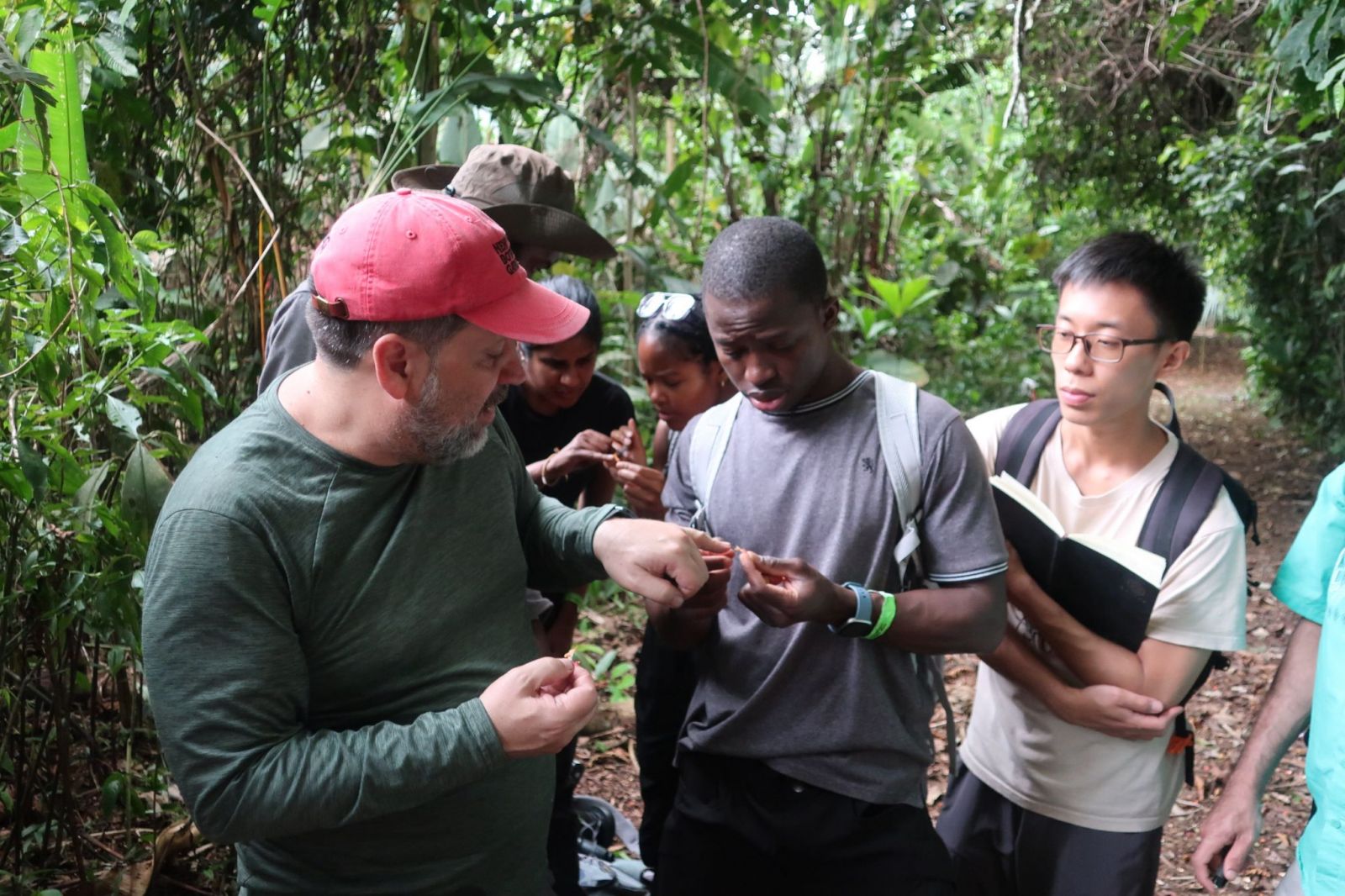
Students learn from Fabián Michelangeli, abess senior curator of tropical botany at New York Botanical Gardens, in the lowland rainforest of La Selva Research Station in Costa Rica. Photo: Peter VanderBloomer
The spring break trip exposed students to three Costa Rican ecosystems: dry tropical forest, lowland rainforest, and cloud forest. “Although many plant families were shared between sites, the uniqueness of each forest was evident at first glance and made all the more striking under closer botanical inspection. Far from having their beauty diminished under the reductionistic lens of science, I found my ability to be awestruck by these neotropical forest systems greatly enhanced by the field course,” says Peter VanderBloomer ’26 MESc.
Students experienced a greater understanding of the plants, wildlife, and vibrant human communities that make Costa Rican forested landscapes their home. Matt Rutkowski ’26 MEM reflects on his final day at the Cuericí Research Station: “The last day at the cloud forest research station brought a mix of sullen and excited emotions. [A classmate] and I decided to go on a sunrise hike to the top of a lookout to soak in the final early hour of our plant adventure. Watching the crepuscular light open up to the day as the seemingly heavy glowing clouds roll into the valley, we were reminded once again that the breadth of the lived experiences on earth are so much wider than what we find ourselves focusing on within our new Yale bubble.”
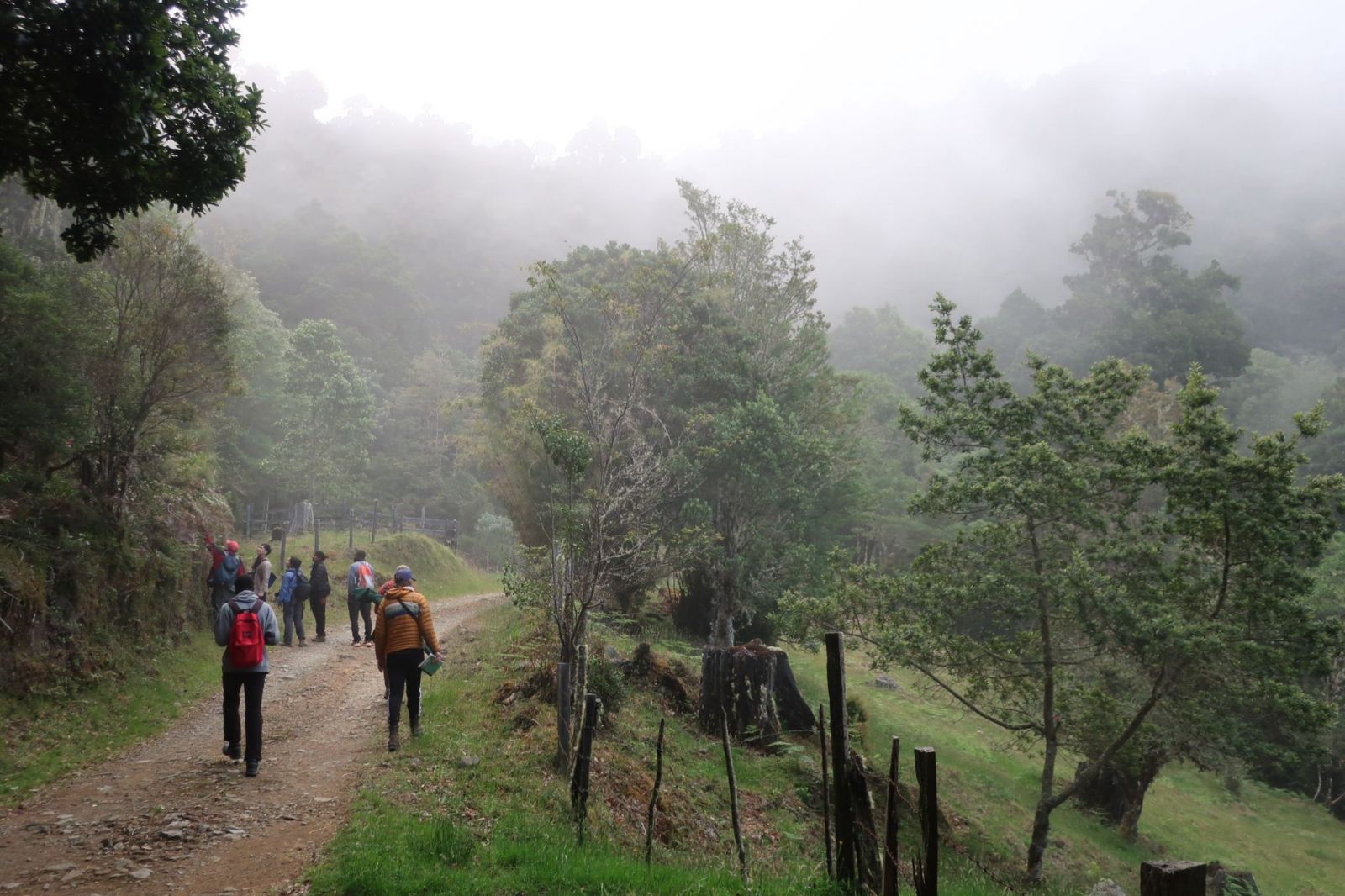
Students walk along a road in the cloud forests of the Cuericí Research Station to identify tropical plant families. Photo: Peter VanderBloomer
Upon returning to New Haven, students reminisce about their time exploring Costa Rica, and the gracious hosts they met along the way. “At every station, they received us with open arms, and every station opened our curiosity for the plants, animals, and people in the area,” says Maria Alejandra Gallegos Koyner ’26 MFS.
Tropical Field Ecology – Ecuador
Students in “Tropical Field Ecology” study tropical biology and the challenges of conserving biodiversity in the tropics. A core component of the course is active learning. Following spring semester seminars, students embark on a 12-day trip to Ecuador led by Simon Queenborough, YSE senior lecturer and research scientist, to explore conservation issues firsthand. While there, they conduct independent research with local partners on topics such as forest dynamics, species interactions, and coevolution.
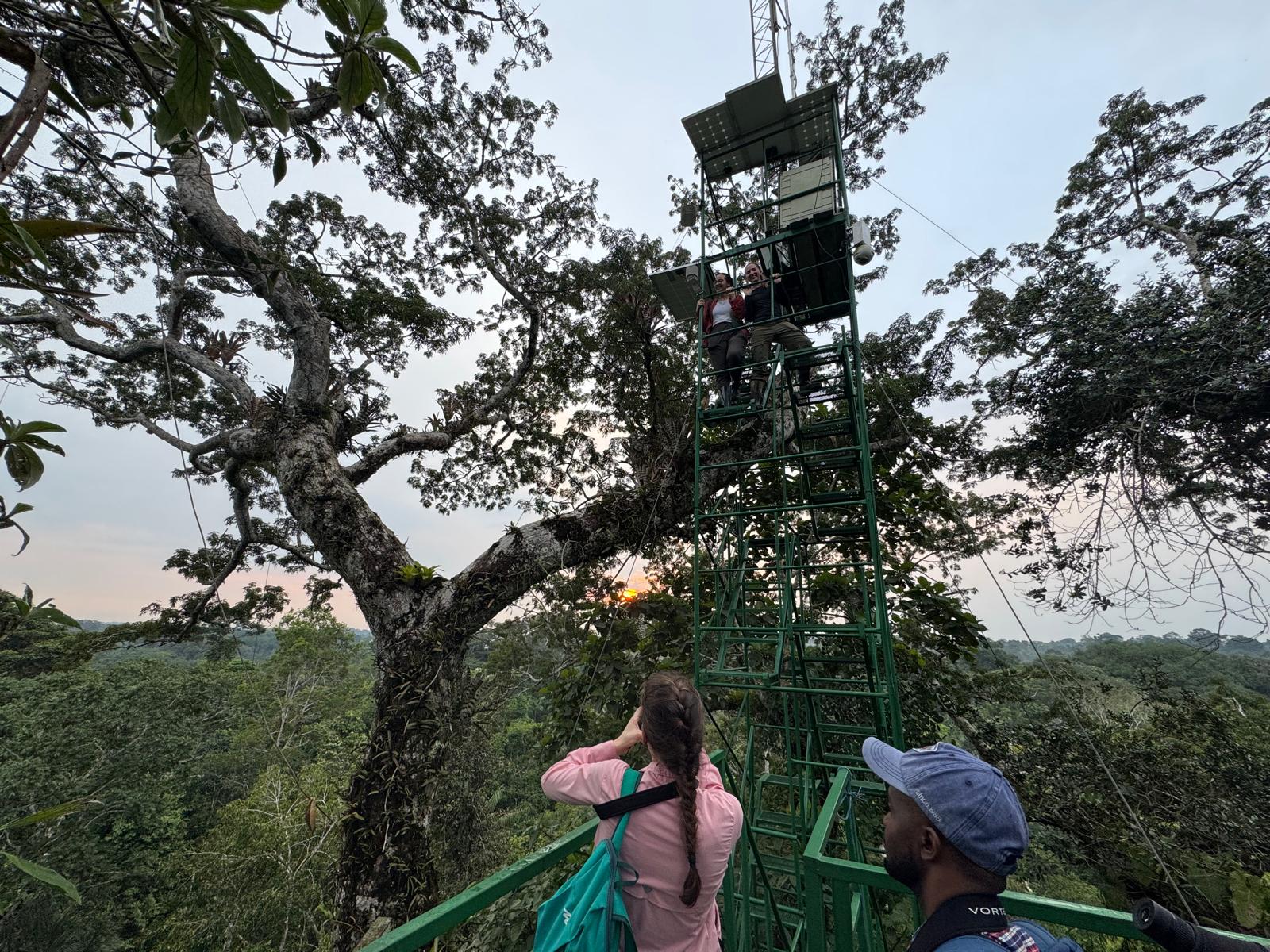
Students learn about forest ecology while in the forest canopy. Photo: Emelia Commey
Ecuador’s rich biological, cultural, and economic diversity made it an ideal setting to examine the complex dynamics of climate change mitigation, forest ecology, and conservation through collaboration with local researchers and communities. The experience students gained on this trip was multifold: practical research experience, strengthened knowledge of course concepts, and the opportunity to learn directly from researchers, practitioners, Indigenous communities, and community members.
The trip also fostered deeper connections among students — not just through collaborative research and fieldwork, but beyond the academic setting. Emelia Commey ’26 MF recalls how sharing meals after long days in the field strengthened her bond with classmates. “After full days of fieldwork, I always looked forward to the food. Mealtimes were comforting and delicious —definitely one of the highlights of each day. As an ambivert, the trip also helped me come out of my shell. I bonded with my classmates through late-night card games, shared laughs, and the occasional night hike. It felt good to connect with people in such a relaxed and fun way.”
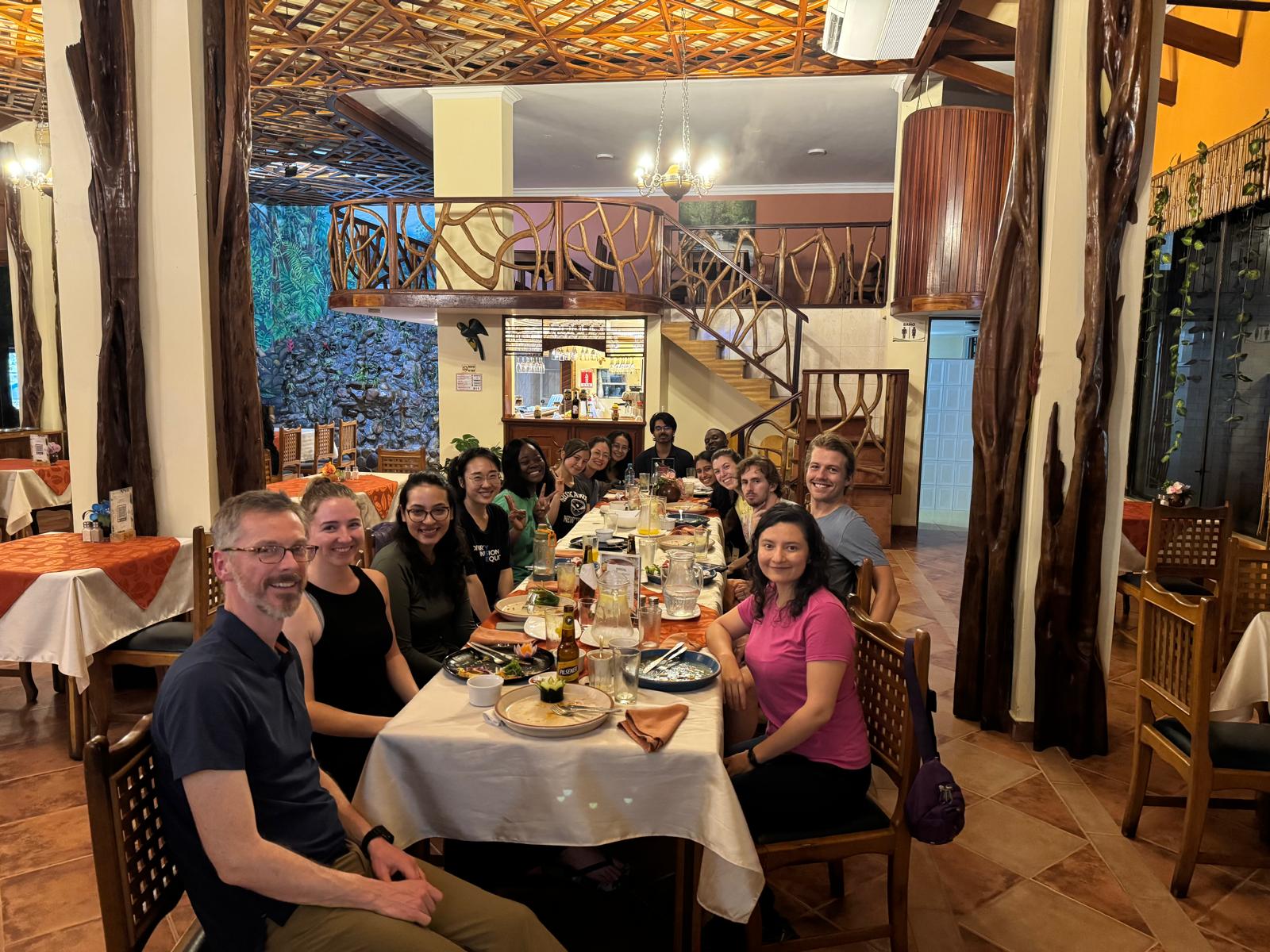
The group shares a meal after a long day out in the field. Photo: Emelia Commey
Engaging Landholders and Communities in Conserving and Restoring Tropical Forest Landscapes – Panama
As part of the “Engaging Landholders and Communities in Conserving and Restoring Tropical Forest Landscapes” course taught by Eva Garden, director of the Environmental Leadership & Training Initiative, students traveled to Panama to explore course topics outside of the classroom. The seminar and field experience offered a holistic exploration of the biological, social, management, and policy aspects of reforestation in tropical regions.
A clear highlight for students was connecting with the vibrant community that the Environmental Leadership & Training Initiative (ELTI) has cultivated. Through conversations with ELTI staff, they gained insight into on-the-ground tropical forest research and restoration programs. They also visited Panamanian cattle ranchers, who have partnered with ELTI for years to restore tree cover on farmland using sustainable practices. The trip deepened students’ understanding of how meaningful partnerships between academic institutions, farmers, researchers, and local communities can drive effective conservation. As many reflected, grasping the local context is essential to the success of any project or system.
“One of my main takeaways from the visits was how crucial having an understanding of cultural context is if you want to help make lasting changes in how people operate. The farms we visited, for example, were out in rural areas, and the farmers live in town. When they only visit the farms a couple times a month, labor-intensive systems like silvopasture become much more difficult to implement, especially on larger farms. We often talk about ‘scaling’ climate solutions like restoration in the abstract, as if it’s only a matter of funding or policy; the complexities only come out if you’re able to immerse yourself in a context,” says Olivia Rhodes ’25 MEM.
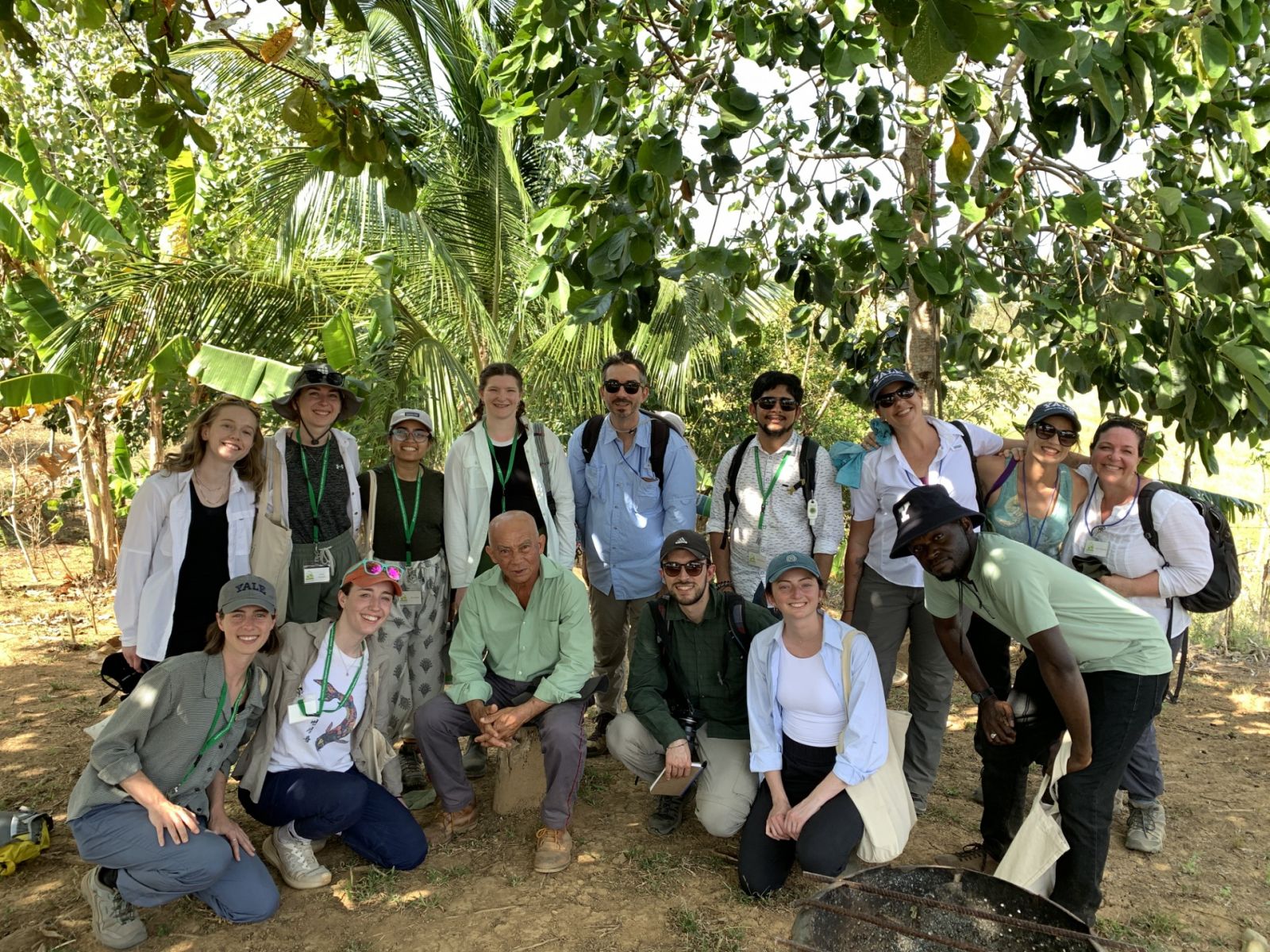
Students and local researchers visit a farm in the Azuero Peninsula, Panama. Photo: Jacob Slusser
These recurring field experiences deepen students’ understanding of course topics, connect them more meaningfully to place, and tether them to community back in New Haven. This immersive approach — a cornerstone of the graduate program — equips students with a grounded perspective on global issues at local scales.




